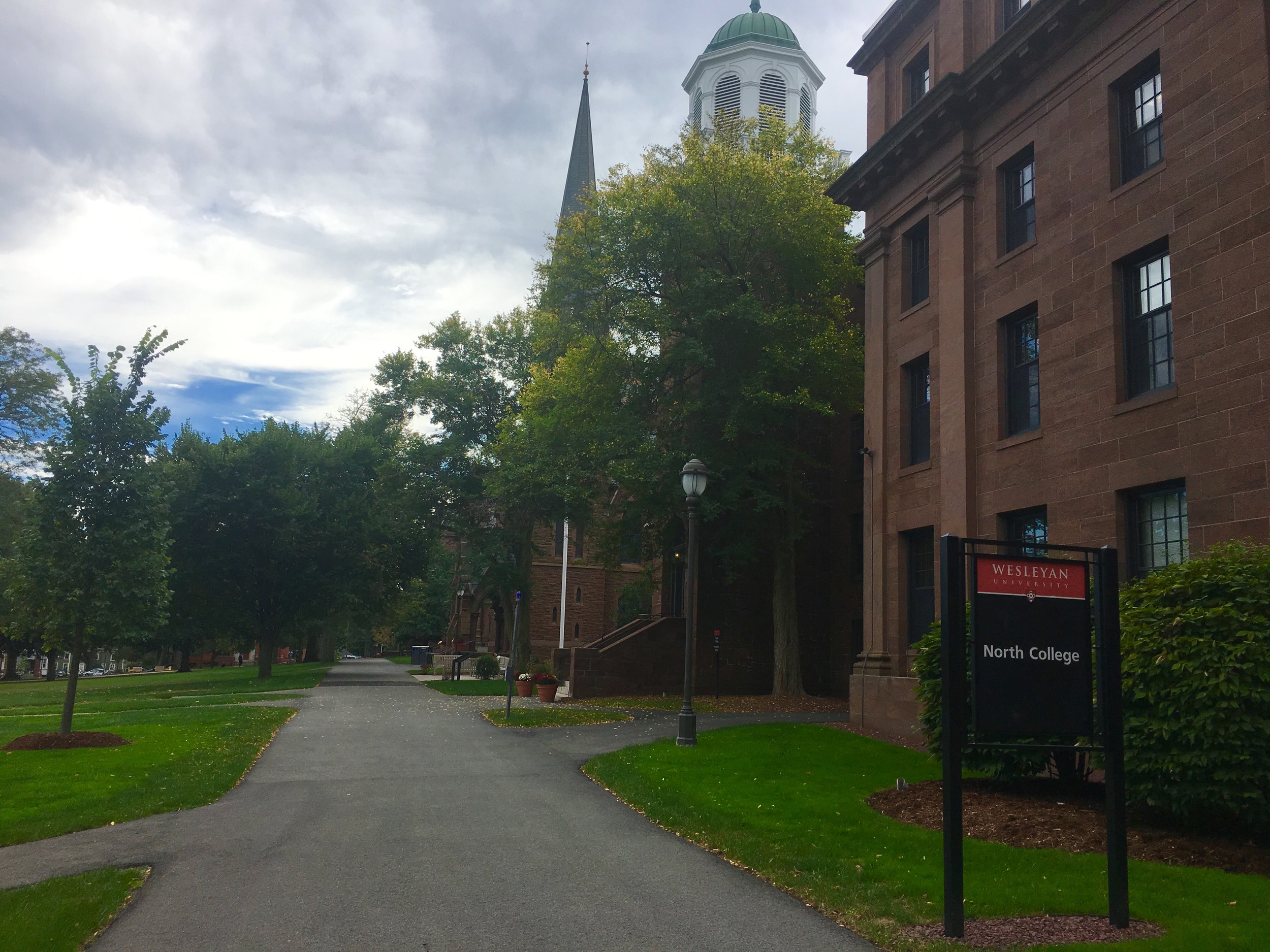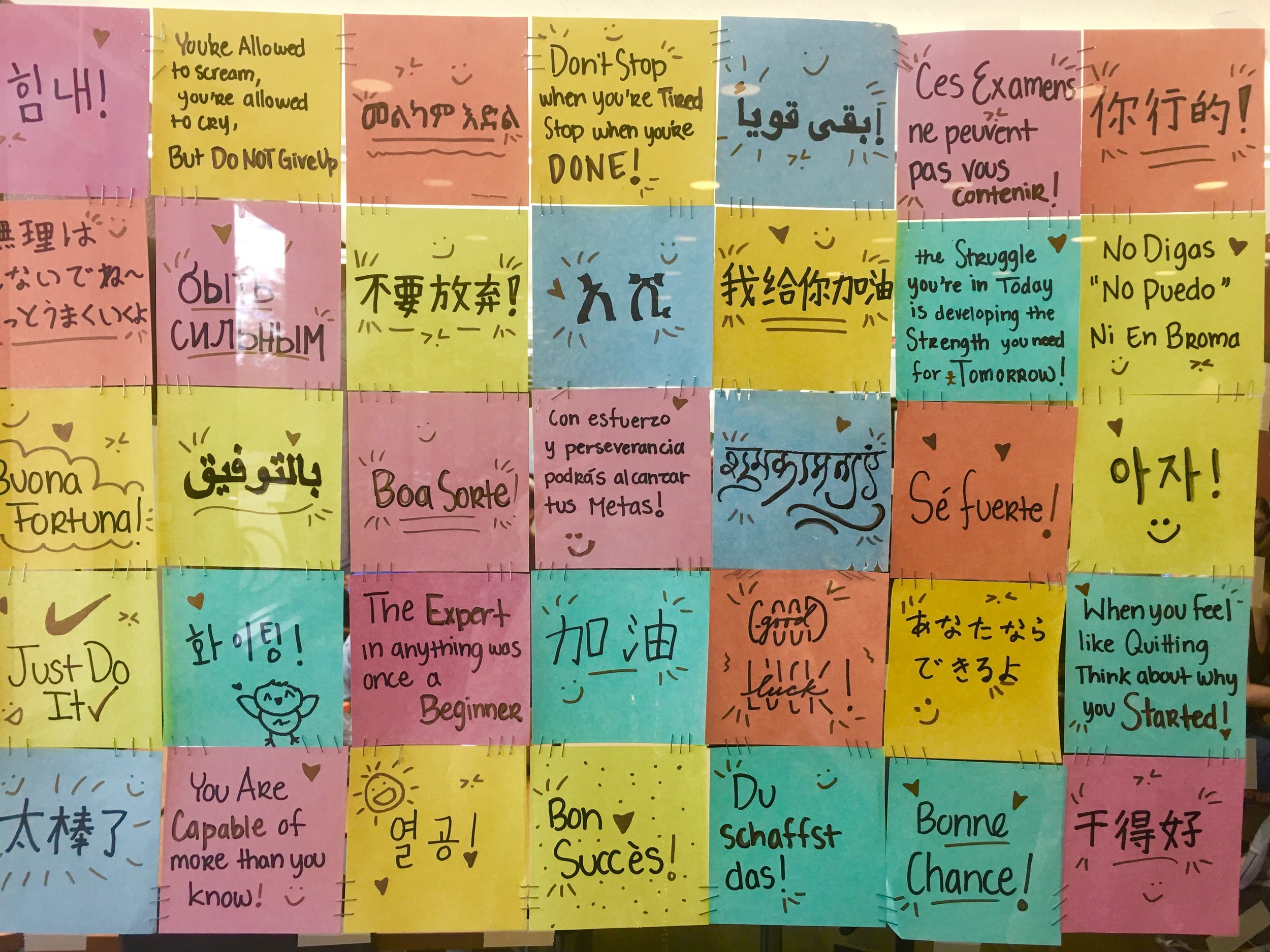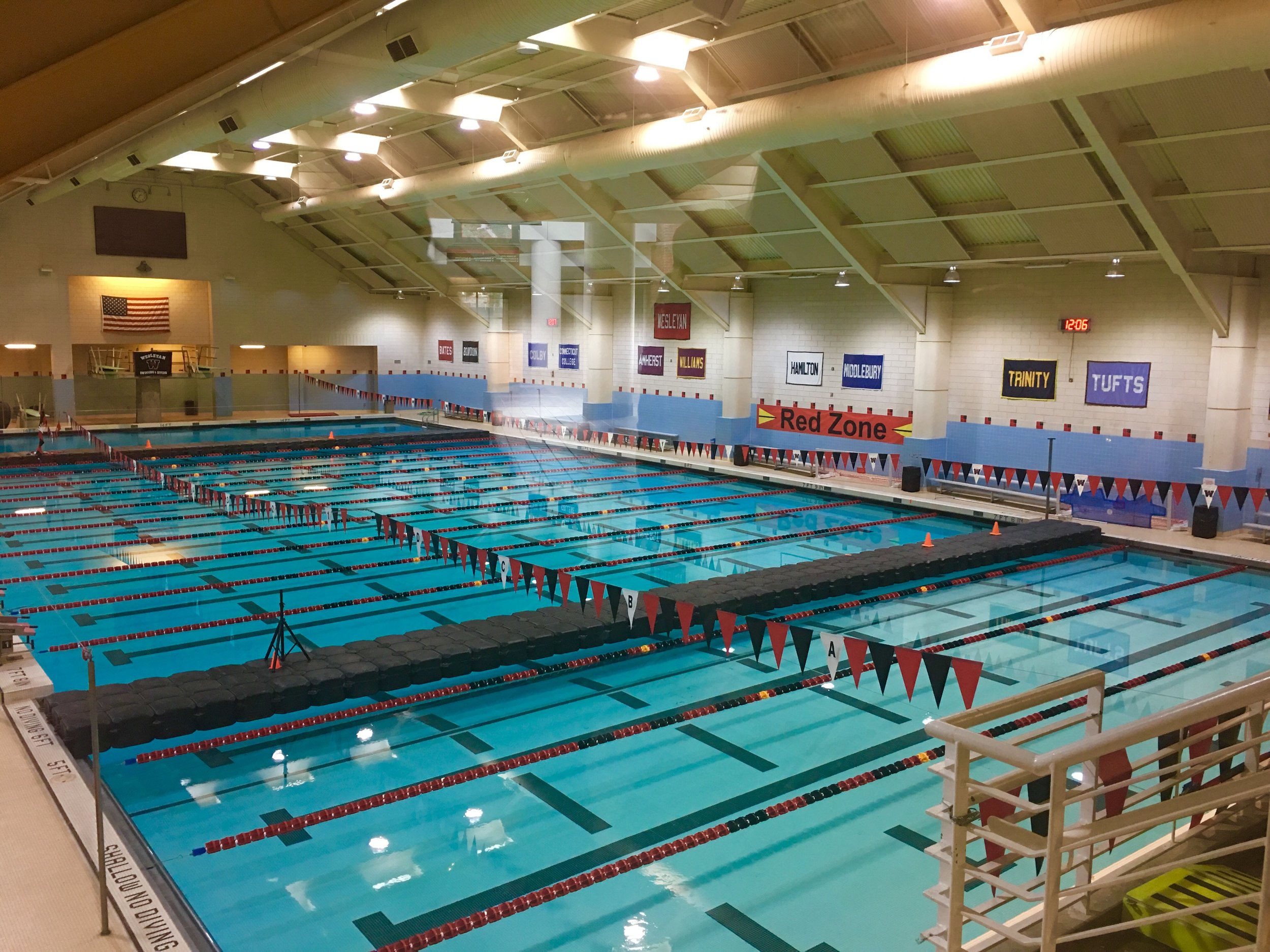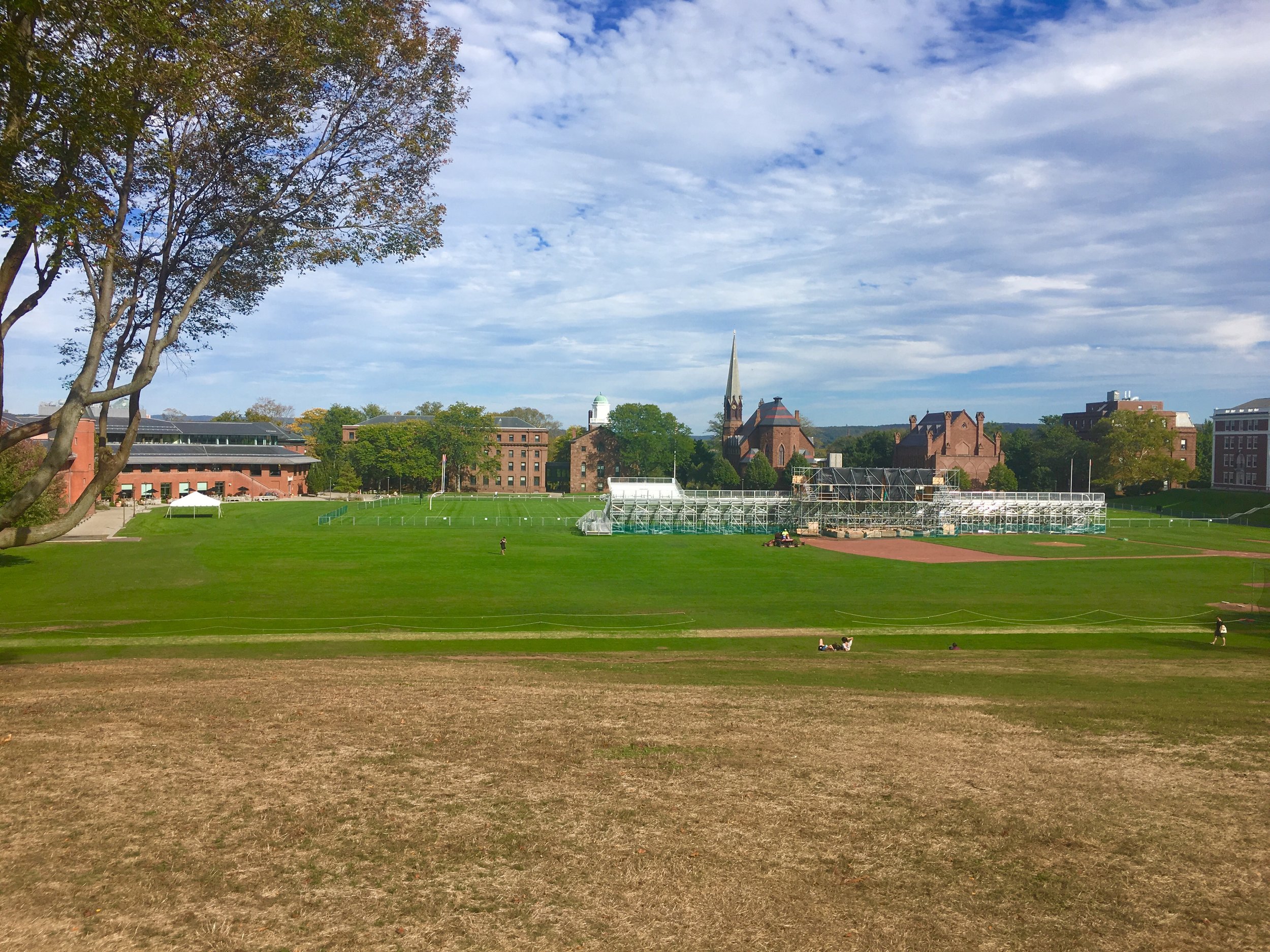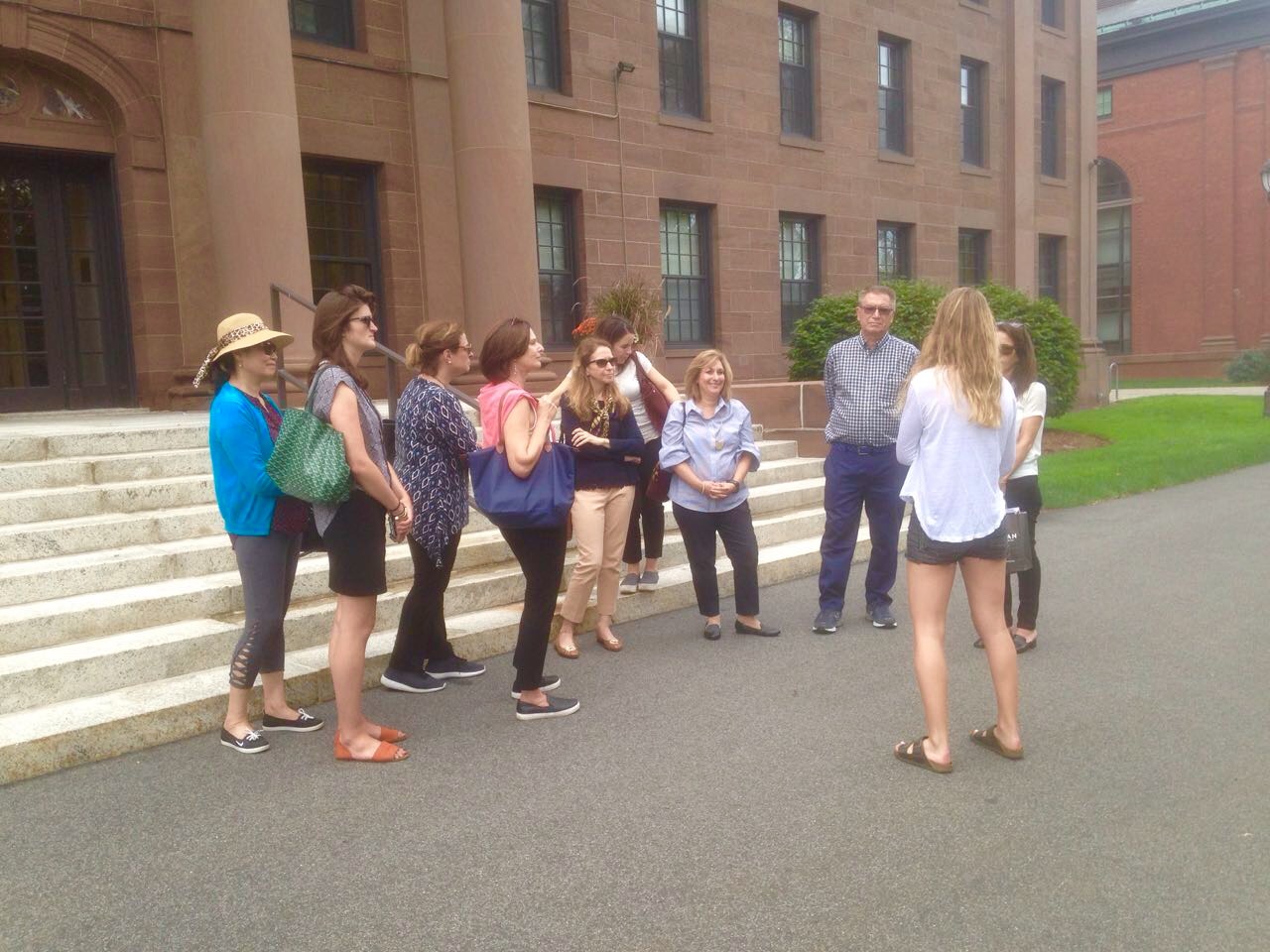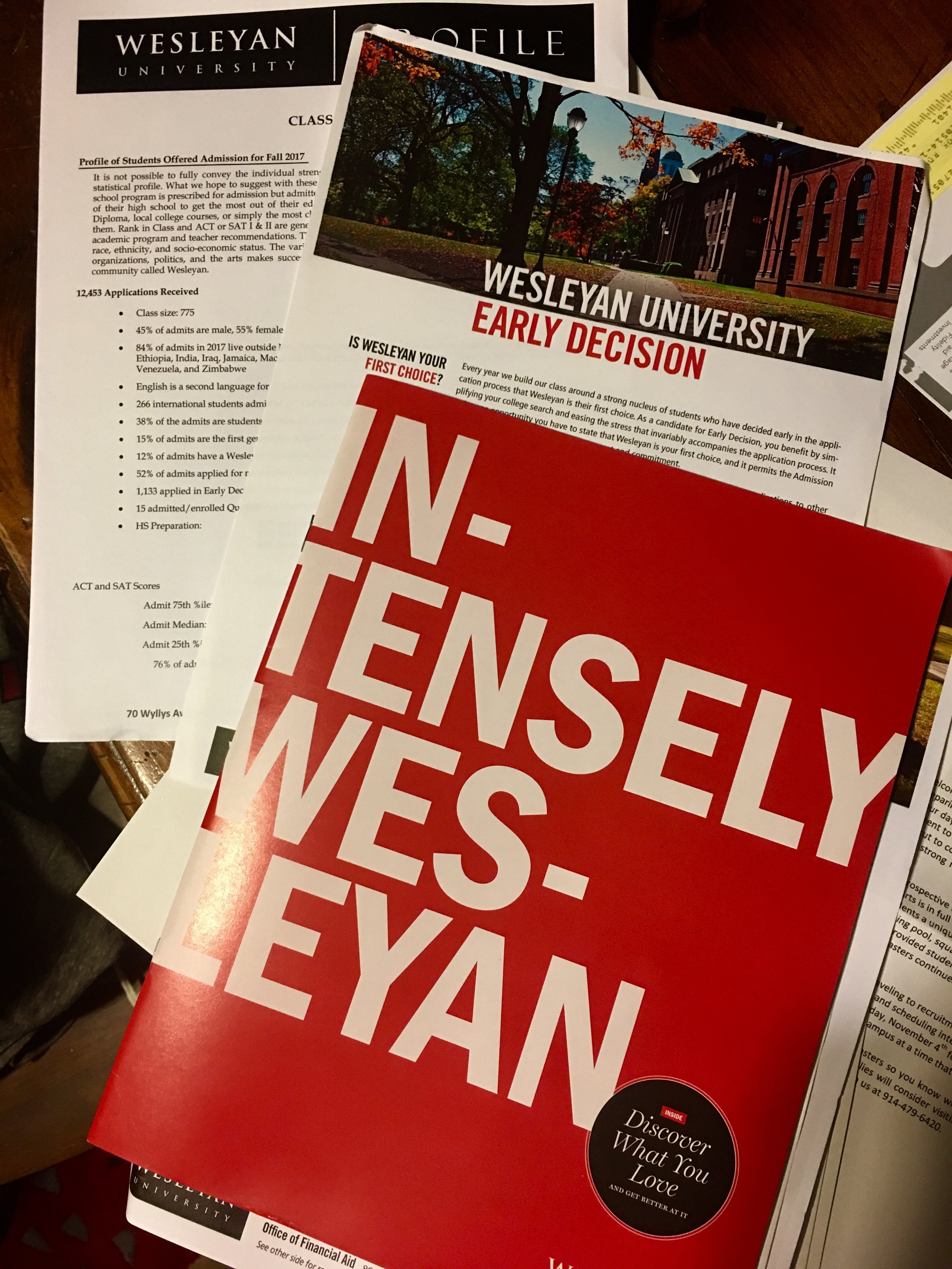The first stop in my North Carolina tour was to visit Wake Forest University, located on the outskirts of Winston-Salem, North Carolina. This highly selective university of 8,000 students moved to Winston-Salem in the 1950s, and is a bastion of scientific inquiry and rigorous liberal arts education in the rolling North Carolina hills. The main campus is located 3/4 miles from downtown Winston-Salem, while the “Wake downtown” campus in downtown Winston-Salem is primarily home to the Engineering Department and Biotech research. In September 2017, U.S. News ranked Wake Forest #27 in the country in their “Best Colleges” listings. From the same report, it was also ranked #12 in “Strong Commitment to Undergraduate Teaching” and #23 in “Best Value”.
Quick Facts about Wake Forest
-Wake is 10% international and 1/3 ethnically diverse
-60% of classes have less than 20 students, and all are discussion-based classes
-Students live by the school motto of Pro Humanitate or For Humanity. That means that community service is huge, and most students participate in some form of service
-During my tour, the tour guide encouraged students to go find professors in a department they are interested in after the tour, told us that they are often open to meeting prospective students
-A new program allows incoming freshman to spend their whole first year in Copenhagen, Denmark
Applying to Wake Forest
Wake Forest has an unusual approach to critiquing and evaluating applicants. This is in part because they do NOT require test scores from the SAT or ACT. As they like to say "4 years in high school means more than 4 hours on a Saturday morning.” How many students don’t submit scores? Most recently, 1/3 of enrolled students did not submit test scores in the application process.
In exchange for offering “test optional” to applicants, Wake encourages students to be creative in their application. Students need to answer 7-8 short answer questions, which include questions like what podcast would you create, and ask students to create their own “Top-10 list.” The admissions officer offered that one of her favorites was “The Top Dwarfs that didn’t make it into Snow White” but she has seen other good ones like “Top 10 Things That Your Grandmother Taught You.” Interviews at Wake usually last 20-25 minutes, and are not required, but recommended. There is a separate Wake Forest application that domestic US students can use, but international students still need to use the Common App. Of course, make sure to check directly with any university’s website for each year’s updated requirements, as expectations, deadlines, and required documents often change without notice.







